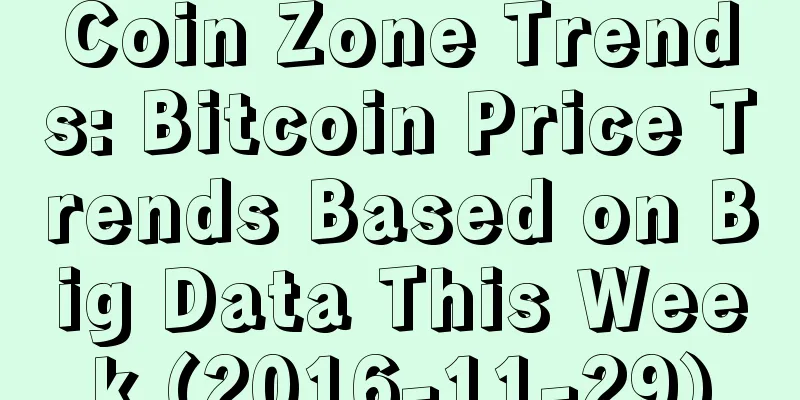Bitcoin price 'brewing a big move'? But analysts suggest it may remain stable

|
The creator of Bitcoin’s Bollinger Band indicator says the Bollinger Band “squeeze” is not a definitive indicator of a Bitcoin breakout. Bitcoin traders are eager to see a new wave of price movement, but disagree on when it will arrive. Price indicators show that BTC/USD is currently experiencing the lowest volatility in history. Volatility is far from guaranteedSince the FTX crisis, Bitcoin has been stuck in a historically tight trading range, refusing to move. Despite macro triggers, subdued holiday volumes, and a yearly close, BTC price action has remained strictly stuck in the $17,000 region. This is the least volatile period in the history of the Bitcoin Historical Volatility Index (BVOL), and other data also shows that such sideways behavior is extremely rare. Two months after the FTX collapse, traders and analysts are abuzz with debate over when BTC/USD will breakout and where it might go. “Bitcoin is in the process of making a big move,” Charles Edwards, founder and CEO of asset management firm Capriole Investments, said on January 5. Bitcoin is currently at a low point in volatility. Generally speaking, when Bitcoin breaks out of very low volatility, the subsequent trend tends to continue. Don't fight the trend in the next big move. An accompanying chart shows the 30-day annualized standard deviation of Bitcoin volatility, which is currently at lows seen only a few times in the past five years. BTC/USD Annotated Chart Source: Charles Edwards/Twitter Also believing the status quo will break down is “Wolf of All Streets” podcast host Scott Melker, who this week marked what he called the “most squeezed” Bollinger Band on bitcoin’s daily chart. Bollinger Bands have been a classic volatility indicator since the 1980s. They similarly use standard deviation to determine the upper and lower limits of price action over a certain period of time. Multiple use cases have emerged from this, including the ability to assess relatively volatile or stable price action, and associated entry and exit points. Data from Cointelegraph Markets Pro and TradingView show that the two bands are currently “squeezed” around BTC/USD’s central moving average, leading to the assumption that volatility should now occur. However, the indicator’s creator, John Bollinger, believes that the length of the squeeze does not necessarily correlate with the timing or strength of future swings. “In my experience, long squeezes are rarely a sign of value,” he said, echoing Melker. BTC/USD 1-day candlestick chart (Bitstamp) and Bollinger Bands Source: TradingView Lack of bullish forecastMeanwhile, as Cointelegraph reported, there is no shortage of bearish Bitcoin price predictions for early 2023. Various warnings have been issued to holders of what could happen, including that Bitcoin could fall to $10,000 or even lower in the first quarter. Upside hopes were relatively muted as analysts focused on U.S. macroeconomic policies and their impact on risk assets. |
<<: Which protocols will benefit from the upcoming Ethereum Shanghai upgrade?
Recommend
Thailand SEC proposes new rules for digital asset custodians
On August 25, the Thai Securities Regulatory Comm...
Mainstream coins are diving, but bullish sentiment remains strong
Mainstream coins are diving, but bullish sentimen...
What kind of control are you?
What kind of control are you? Control is a strong...
What are the blockchain projects that are acceptable in China?
Since Satoshi Nakamoto created "Bitcoin"...
The faces of the more heartless people in life
In life, some people work hard, think carefully, ...
Never marry the wrong man - male face analysis
If you choose the right man, you will be happy al...
Short fingers and strong energy
Short and thick fingers Short fingers and strong ...
Talen Energy raises $175 million to build data centers and crypto mining farms
On September 22, U.S. power company Talen Energy ...
What does a short nose mean for a woman?
Some noses are long, some are short. What is the ...
How to tell a woman's love fortune by looking at her tear ducts
The more we talk about women's love fortune, ...
ETHW CORE releases initial version, responding to ETC Cooperative’s “letter of persuasion”
The day of Ethereum merger is getting closer, but...
How to motivate miners to switch from POW to POS?
When the Ethereum network switches from the POW m...
The facial features of women who have boyfriends but still date the opposite sex secretly
In fact, it is normal for people to maintain rela...
Moles reveal which women are most likely to bring good luck to their husbands
The moles on our bodies can bring us good luck or...
Hair reveals a person's destiny
Hair reveals a person's destiny Many books on...









